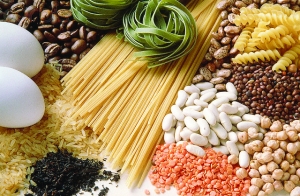Who fires up the healthy living craze?
It was almost noon, and 52-year-old aunty Ma turned on her TV. Many programs were lecturing on how to keep healthy by touching ears and clicking teeth, or how to discover hidden diseases by observing the changes of palm prints.
 For aunty Ma, these lectures allow her to keep healthy with simple, nutritious diets. "After all, what they broadcast on TV is doctor's advice," she said.
For aunty Ma, these lectures allow her to keep healthy with simple, nutritious diets. "After all, what they broadcast on TV is doctor's advice," she said.
Unfortunately, this is not always true. A TV station executive revealed that many "doctors" and "therapists" in TV shows are unlicensed.
To catch the attention of viewers, they preach sensational theories, such as "milk is for calves, not for human beings," or hype up the magical effects of their therapies, such as "after the treatment, a patient suffering complete spinal cord injury for 14 months can now walk."
These "medical miracles" are then reported repeatedly on TV and in newspapers.
Zhang Wuben used to be the most popular food therapist in China. He claimed that mung beans and eggplant could cure many chronic diseases. His books sold millions of copies. Recently, however, the media uncovered the fraudulent nature of his credentials.
He is not the first swindler to be exposed by the media.
Not long ago, a so-called "health godmother," Ma Yueling, claimed that eating eels alive could help people gain strength. Soon after, a national news agency reported that hundreds of people fell ill in a southwestern province after following her instructions.
During the past few years, many "therapists" received ample praise, were discovered to be cheaters, and then were cursed at full blast by the media.
"Mass media has the responsibility to select qualified hosts and check if their theory is scientific," said Zhang Zhi'an, the head of the Fudan Media Literacy Research Center. "But in reality, most reporters lack relative knowledge and can't make a judgment. Therefore, the audience should be extremely careful about what they learn from the media."
Yet, for aunty Ma and her peers, TV is a major outlet to acquire knowledge, especially when they know little about healthcare.
After the failure of these "therapists," aunty Ma was confused. "If the doctor is fake, why was his program broadcast on TV?" she asked.
 0
0 






